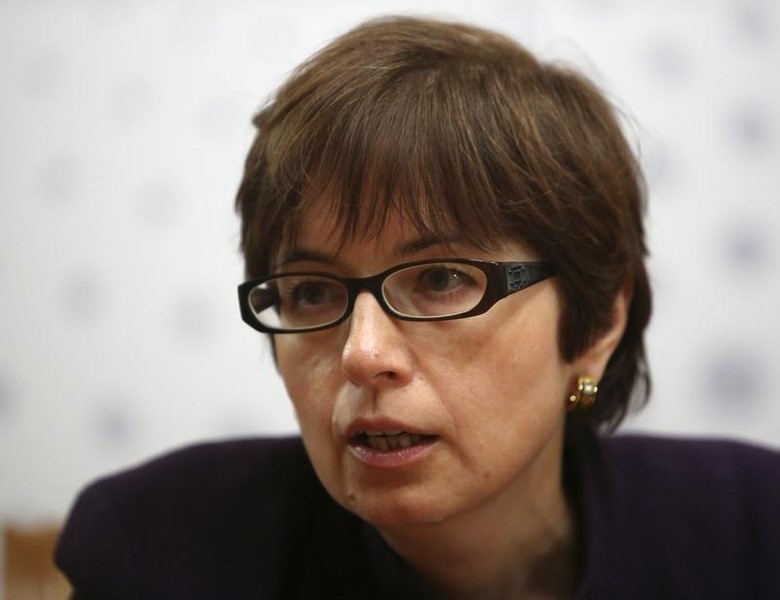By Lisa Jucca
HONG KONG (Reuters) - Russia is not suffering the same pace of capital outflows as at the end of 2008 and sees no need to introduce capital controls, central bank first deputy governor Ksenia Yudayeva told Reuters on Tuesday.
"We do not see the objective need of capital control measures," she said in an interview on the sidelines of the Asian Financial Forum in Hong Kong.
Net outflows by companies and banks reached a record $151.5 billion (100 billion pounds) last year, nearly triple the 2013 level and exceeding the $133.6 billion in 2008 during the global financial crisis, illustrating the impact of Western sanctions and the blow from slumping oil prices.
But Yudayeva said 2008 outflows were concentrated in the that year's second half, whose pace was much faster than in the last six months of 2014.
"There is no objective need for capital control measures," she said.
On Jan. 14, Russian Prime Minister Dmitry Medvedev ruled out capital controls. During the 2008 crisis, Russia did not impose any such controls.
Yudayeva said that Russia's exporters, especially in energy, would be asked to better manage their foreign currency reserves.
"We are in dialogue with all major exporters explaining to them that more regular sales of foreign currency revenues would work as a hedge for their exchange-rate risks," Yudayeva said.
Asked about the threat of a downgrade of Russia's sovereign rating to "junk" after international rating agencies placed the country on negative outlook, Yudayeva said Russia would honour its debt payments
She said Russia's foreign currency debt represented only around 5 percent of the country's gross domestic product (GDP) and that overall debt was about 15 percent of GDP.
"Whatever the rating agencies said, we believe the probability of any negative event on these debt payments is actually zero," Yudayeva said.
LOWER FORECASTS
Yudayeva said that in the light of oil prices now hovering at around $50 a barrel, the central bank was likely to lower the oil price range it uses in its base line macro scenario, now at $60-$80 a barrel.
The central banker also said bad loans at Russian banks were on the rise and that ensuring the adequate capitalisation of banks was currently a "big concern".
To ease some pressure Russian banks and companies feel on trade finance after the plunge in the rouble's value, the Bank of Russia last year signed a bilateral currency swap agreement with the People's Bank of China.
The three-year facility, worth 150 billion yuan ($24.13 billion), would allow Russia, and indirectly its banks and companies, to exchange rouble for yuan without going through currencies such as the dollar and the euro, helping them to save on conversion payments.
"The Russian-Chinese agreement will provide an opportunity to obtain international liquidity whenever required," Yudayeva said, calling it "an additional tool for ensuring financial stability".
She said the Bank of Russia was finalising implementing measures for the swap deal.
